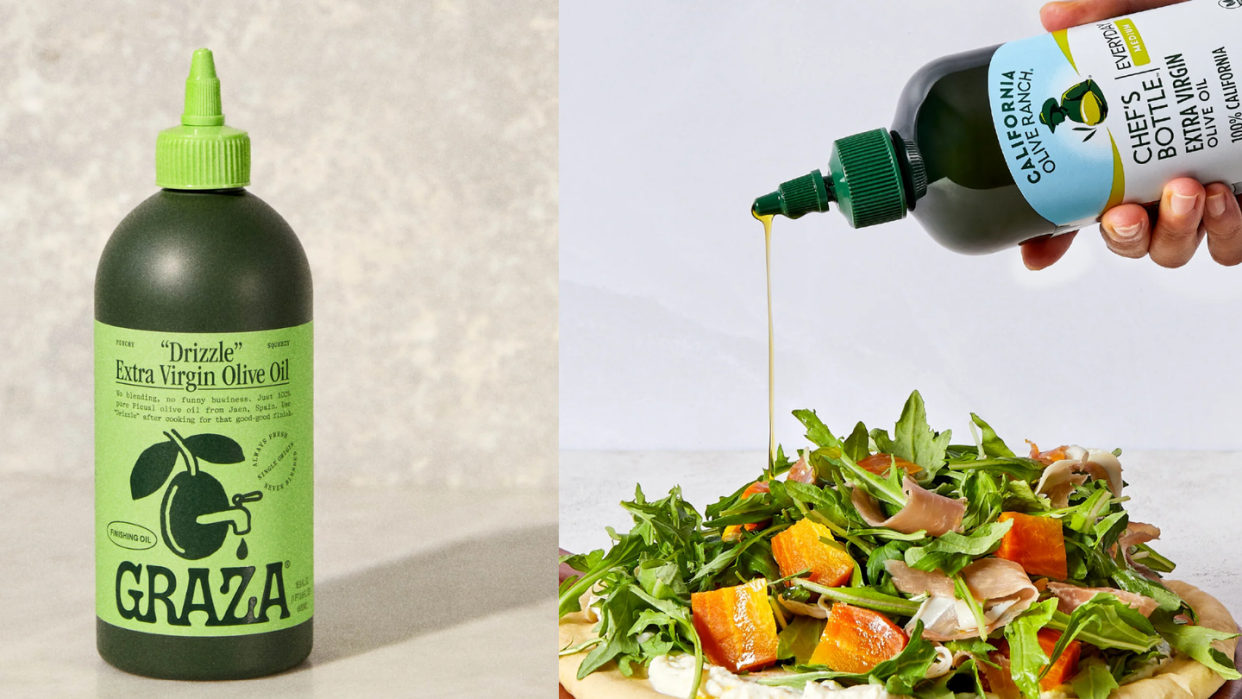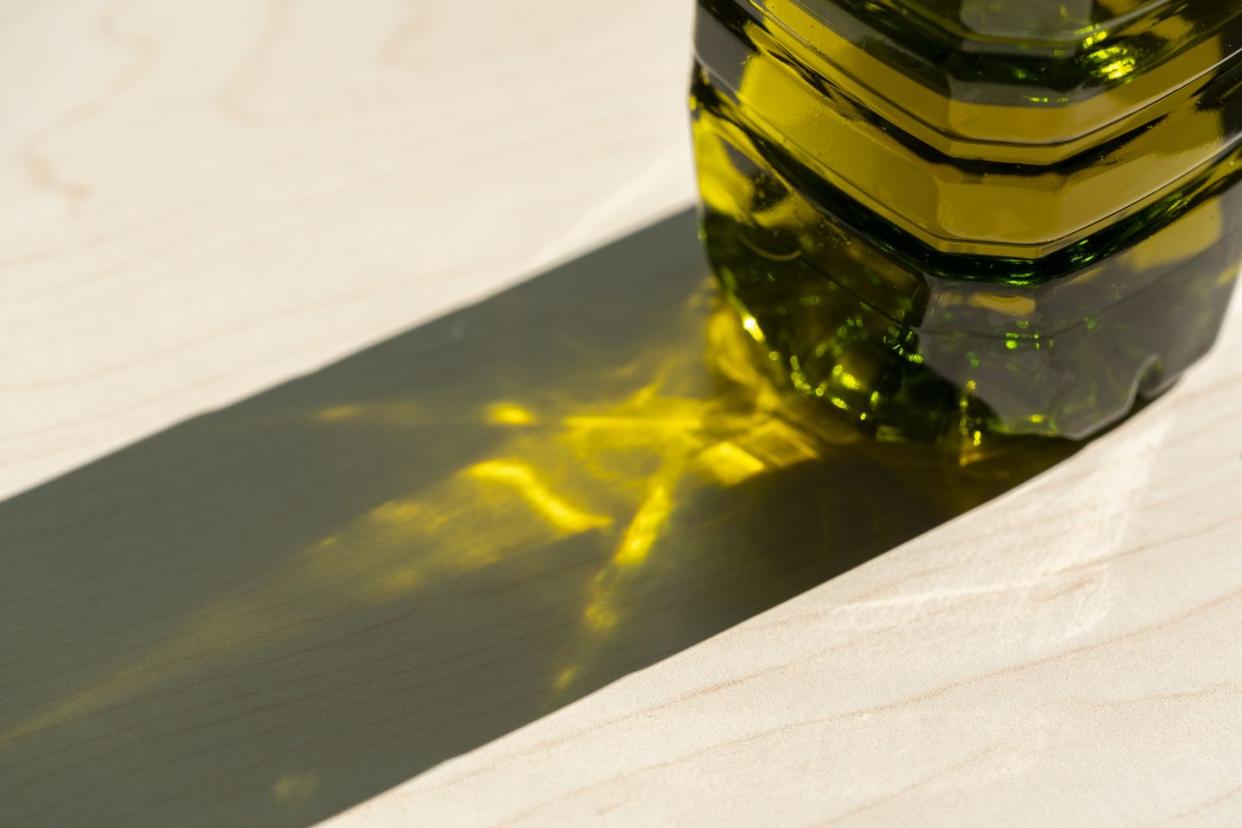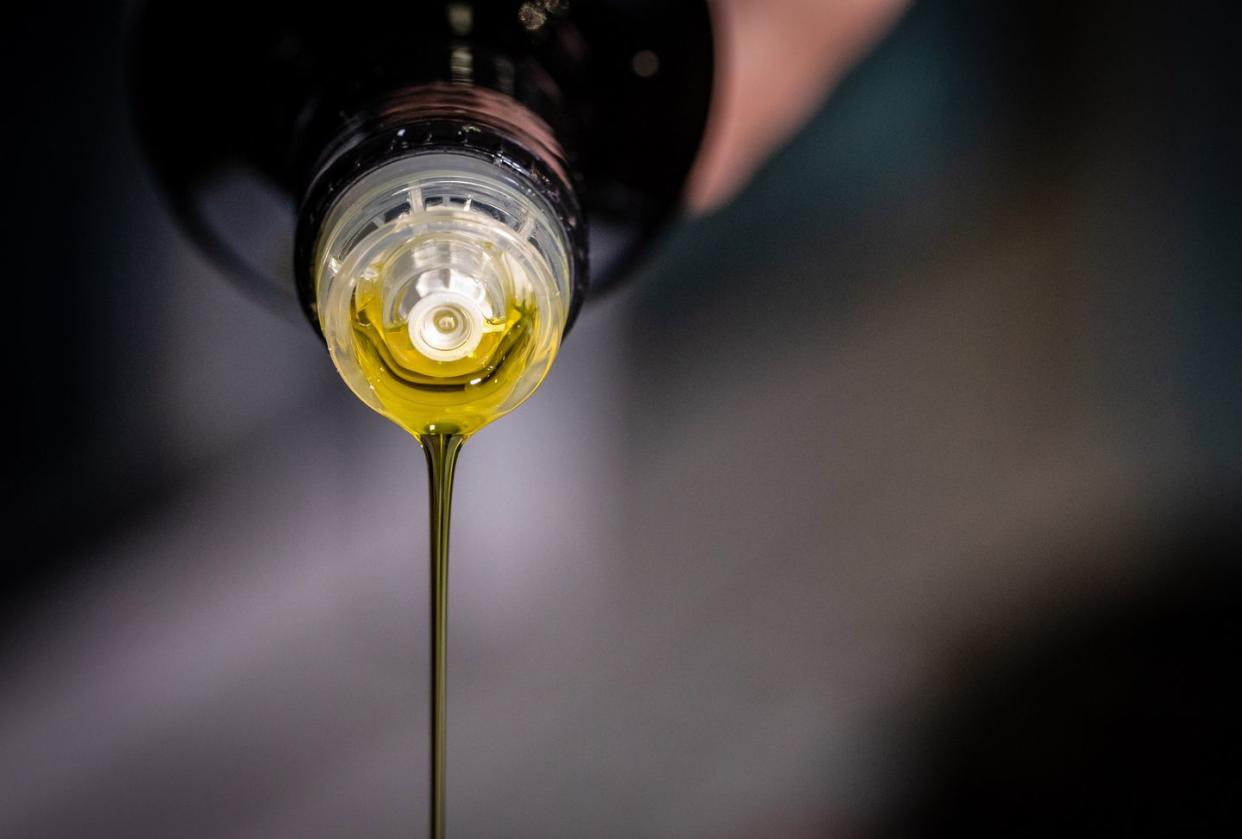Here's What Really Happens When You Store Olive Oil In Plastic Bottles

"Hearst Magazines and Yahoo may earn commission or revenue on some items through these links."
Countless recipes start with a splash of olive oil. Olive oil is a fruity, peppery, and versatile cooking oil that’s widely used in many different cuisines. We’ve taste-tested our fair share of olive oil brands, and their packaging ranges from glass to metal to plastic.
Some of the trendiest olive oils on the market have become powerhouse brands in part because of their plastic-squeeze-bottle packaging. Graza arguably led the charge, with brands like Brightland and California Olive Ranch quickly following suit.
Even those who don’t buy olive oil in squeeze bottles often decant it into plastic containers themselves—a practice often employed in professional kitchens. But as the conversation around PFAS becomes more and more relevant, people are understandably concerned about keeping oil in plastic.
Is it safe to store olive oil in plastic bottles? What’s the right way to store olive oil? We’re here to unpack all of the truths about olive oil storage.
Is Plastic The Best Way To Store Olive Oil?

The short answer is no, but that doesn’t mean you need to swear off plastic packaging entirely. Olive oil, particularly extra virgin varieties, are susceptible to degradation from certain environmental factors.
Light, oxygen, and heat all accelerate oxidation process, which denatures the fat molecules in your cooking oil and causes it to go rancid. Rancidity does not make food unsafe, but it does impart a bitter, almost sour flavor.
Many olive oil brands choose to package their products with materials that limit light exposure—like opaque metal and plastic or tinted glass—to delay the rate of oxidation.
However, studies indicate that plastic bottles made with polyethylene are less effective at protecting olive oil from oxidation. They also report that plastic storage containers can significantly decrease the amount of antioxidants naturally found in extra virgin olive oil.
The risk of PFAS and microplastics leaching into your oil is not zero, either. A 2023 study by researchers at University of Notre Dame found that plastic bottles made with fluorinated high-density polyethylene containers, or HDPE, can impart certain chemicals into your oil. That rate increases significantly if the bottle is exposed to heat.
It’s worth clarifying, however, that this risk is specific to containers that have been treated with fluorine—but there is no way to identify which containers have been treated this way. Exposure to PFAS is also, to some extent, inevitable. Notre Dame representatives note, “If substances like pesticides are stored in these containers, and then are used on agricultural crops, these same PFAS will get into human food sources that way.”
What Is The Safest Way To Use Plastic Olive Oil Bottles?

No need to panic. You don’t need to throw away your Graza. There’s a reason why squeeze bottles are widely used in professional kitchens—they’re convenient and make measuring oil easy. The risk of PFAS will always be present in some capacity. There are, however, methods to mitigate exposure.
First, you should utilize proper storage methods. Regardless of packaging, you should keep your olive oil away from heat and light. That means you should avoid storing your bottles directly next to the oven or near a window.
Another potential solution is using glass or metal containers for long term olive oil storage, then decanting small amounts into plastic squeeze bottles for short term use. This is common practice in professional kitchens, where olive oil is used quickly and only spends a day or two in a plastic container.
You Might Also Like
